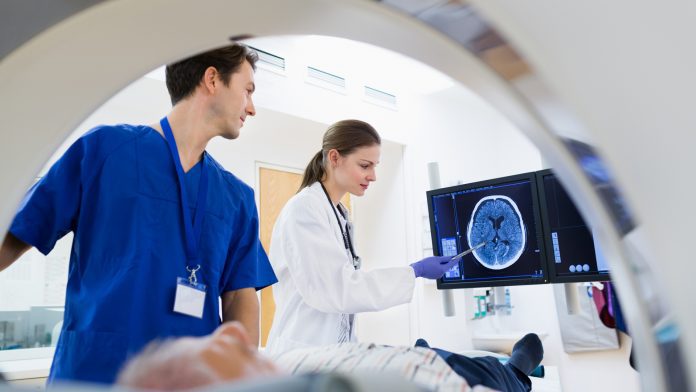
An early-stage Alzheimer’s diagnosis is typically difficult to identify, but new machine learning technology could change this.
There is no cure for Alzheimer’s disease, amplifying the demand for technologies that can deliver an early Alzheimer’s diagnosis. An early-stage diagnosis provides a wealth of benefits to patients and their carers, including early access to help and support from the initial discovery, treatment to manage symptoms, and allows for future planning. Early Alzheimer’s diagnosis data can also strengthen medical research.
The research is published in Communications Medicine and funded by National Institute for Health and Care Research (NIHR) Imperial Biomedical Research Centre.
Revolutionising Alzheimer’s diagnosis methods
Presently, doctors use a range of tests for diagnosing Alzheimer’s, including brain scans and cognitive and memory tests. The scans check for protein deposits in the brain and shrinkage of the hippocampus, the area of the brain linked to memory. These tests can take several weeks to arrange and process.
The new Alzheimer’s diagnosis approach uses the standard 1.5 Tesla magnetic resonance imaging (MRI) machine, a piece of equipment commonly available in most hospitals.
The research team from Imperial College London adapted an algorithm typically used to classify cancer tumours and applied it to the brain. They divided the brain into 115 regions and allocated 660 features (size, shape, and texture) to assess each brain region. The algorithm then identified where changes to these features could accurately predict the existence of Alzheimer’s.
Accurate diagnosis in 98% of cases
The researchers used data from over 400 patients in the Alzheimer’s Disease Neuroimaging Initiative to test the algorithm. The cohort included patients with an early- and later-stage Alzheimer’s diagnosis, healthy controls, and patients with other neurological conditions such as Parkinson’s disease. They also tested it with data from over 80 patients undergoing diagnostic tests for Alzheimer’s at Imperial College Healthcare NHS Trust.
In 98% of cases, the MRI-based machine learning system accurately predicted whether a patient had Alzheimer’s disease or not. The algorithm could determine early- and late-stage Alzheimer’s with high accuracy in 79% of patients.
Professor Eric Aboagye, from Imperial’s Department of Surgery and Cancer, who led the research, said: “Currently, no other simple and widely available methods can predict Alzheimer’s disease with this level of accuracy, so our research is an important step forward. Many patients who present with Alzheimer’s at memory clinics do also have other neurological conditions, but even within this group, our system could pick out those patients who had Alzheimer’s from those who did not.
“Waiting for a diagnosis can be a horrible experience for patients and their families. If we could cut down the amount of time they have to wait, make diagnosis a simpler process, and reduce some of the uncertainty, that would help a great deal. Our new approach could also identify early-stage patients for clinical trials of new drug treatments or lifestyle changes, which is currently very hard to do.”
Spotting new brain changes
The new system spotted changes in areas of the brain not previously associated with Alzheimer’s disease, including the cerebellum (the part of the brain that coordinates and regulates physical activity) and the ventral diencephalon (linked to the senses, sight, and hearing).
Dr Paresh Malhotra, who is a consultant neurologist at Imperial College Healthcare NHS Trust and a researcher in Imperial’s Department of Brain Sciences, said: “Although neuroradiologists already interpret MRI scans to help diagnose Alzheimer’s, there are likely to be features of the scans that aren’t visible, even to specialists. Using an algorithm able to select the texture and subtle structural features in the brain that are affected by Alzheimer’s could really enhance the information we can gain from standard imaging techniques.”







